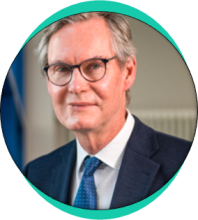MSE 298 Seminar: Design and Mechanics of Adhesive Microstructures – How Bioinspiration is Changing Micromanipulation

Professor
New Materials and Scientific Director of INM
Leibniz Institute for New Materials in Saarbrücken, German
Abstract: Biological evolution has arrived at resource-efficient and sustainable materials solutions. Inspired by natural examples, the micropatterning of polymeric surfaces has now become a powerful paradigm: microfibrillar structures can be designed for, e.g., controlled wetting and anti-icing to coloration and switchable adhesion, enabling gripping of objects without energy expenditure or deleterious chemicals. This talk will discuss our results of microstructure design as well as the mechanics of microfibrillar adhesion. Successful integration of these materials has been achieved in innovative pick-and-place systems or as delicate skin adhesives. A recent development is the integration of machinle learning in operando to improve the reliability of handling, for example, for microassembly or removal of satellite debris from orbit.
Bio: Eduard Arzt is a professor for new materials and the scientific director of the Leibniz Institute for New Materials in Saarbrücken, a leading German research laboratory. Previously, he co-directed the Max Planck Institute for Metals Research in Stuttgart. After earning a doctorate in physics from the University of Vienna, Austria, he has carried out research at Cambridge University, Stanford University, MIT and the University of California. He is the recipient of the Leibniz Award, the Fellow Award and the Morris Cohen Award of TMS and several competitive European Research Council grants. He is member of several academies including the U.S. National Academy of Engineering. Arzt is editor-in-chief of the review journal Progress in Materials Science and co-founder of a deep tech start-up company.
